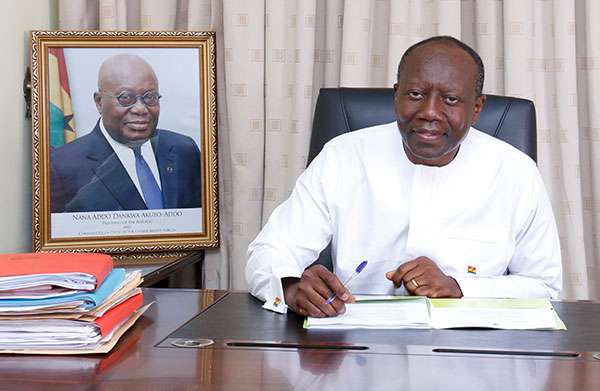Standard and Poor’s (S&P) Global has downgraded Ghana’s long-term local currency bonds to “selective default” and cut the country’s foreign currency debt to “CC” from “CCC+” with default as “virtual certainty”.
S&P stated that Ghana’s proposed local debt swap is a “distressed exchange offer,” earning those bonds the “selective default” rating, while the foreign currency bonds downgrade responds to the government’s announced plans to restructure that debt.
The recent downgrade came barely a week after another credit rating agency, Moody’s Investors Service, downgraded Ghana deeper into junk territory on the likelihood that private creditors will incur steep losses during the government’s planned debt restructuring.
The country’s credit rating was slashed by two levels to Ca, the second-lowest score at Moody’s, according to a statement issued on Tuesday, November 29, 2022. That puts Ghana on par with Sri Lanka, which is in default.
The downgrade followed plans in Ghana’s proposed 2023 budget to restructure both local and foreign debts.
Ghana’s parliament on Tuesday, December 6, 2022 narrowly approved the proposed 2023 budget, overcoming resistance from opposition lawmakers over the inclusion of the debt exchange and a higher value-added tax.
Second consecutive downgrade
The recent downgrade by Standard and Poor’s is the second consecutive time the rating agency is downgrading the country’s foreign currency debt this year.
The ratings agency on Friday, August 5, 2022 lowered Ghana’s local and foreign currency credit ratings to CCC+/C from B-/B, pointing to the government’s “limited commercial financing options, and constrained external and fiscal buffers”.
Standard and Poor’s downgrade of the West African nation’s sovereign credit rating in August, attracted the wrath of government which forced the Finance Ministry to respond, saying “government is disappointed by S&P’s decision to downgrade Ghana despite the bold policies implemented in 2022 to address macro fiscal challenges and debt sustainability”.
In a statement, the finance ministry highlighted that Ghana’s worsening economic state had been exacerbated by “global external shocks”, and that various revenue-saving measures introduced at the beginning of the year would soon bear fruit.

Moody’s and Fitch both downgraded Ghana at the beginning of the year, drawing criticism from Finance Minister, Ken Ofori-Atta, who said international ratings agencies were institutionally biased against African economies.
Inability to access global capital markets
Ghana has since been unable to tap global capital markets, which the finance ministry and the central bank have partially blamed on the downgrades. The country’s reserves are also fast depleting, covering only 2.9 months of import cover at the end of October 2022 compared to 4.3 months of imports at the end of December 2021.
The significant decline in reserve buffers arising partly from loss of market access, significant portfolio reversals, rising petroleum product importation bill, market reaction to sovereign downgrades by rating agencies on fiscal concerns, alongside increased foreign exchange demand exerted intense pressures on the local currency.
In the year to November 24, 2022, the Ghana Cedi cumulatively depreciated by 54.2 percent, 48.9 percent, and 49.9 percent against the US dollar, the Pound, and Euro, respectively. In comparison with the same period of last year, the Ghana Cedi was much stronger, depreciating by 2.6 percent and 0.2 percent against the US dollar and the Pound, respectively, and appreciated by 6.6 percent against Euro.
READ ALSO: I’m Not Sure NDC Is Broke, That Is Propaganda Talk- Political Scientist





















